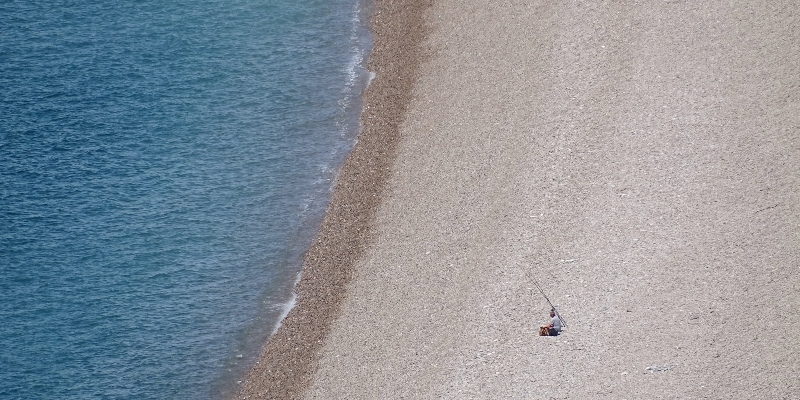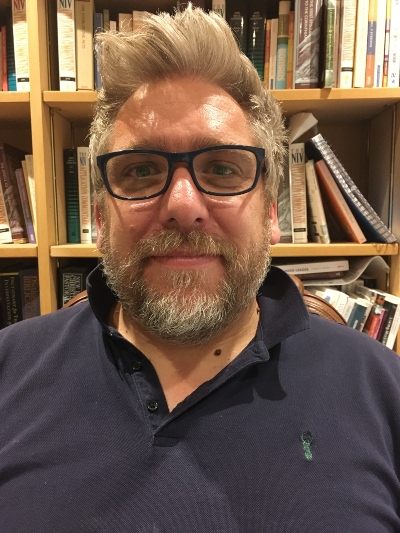It was 10 years ago, and I was heading for yet another
burnout. So much to do, so much to
achieve, so many ideas to implement… striving in so many ways. And most of the day to day busyness was so so
good! ‘Ben, when is your Sabbath’? asked Sian, my Christian Yoda! In fact,
perhaps she said, ‘Sabbath Ben, when is’?
Proudly, I have taken my day off every week, seeing the importance of
being with the kids, I proudly declared ‘Saturday is my day off’. Sian replied, ‘I didn’t ask when you took
your day off, I asked when you have your sabbath rest’? (She may have said ‘day
off not asked, but sabbath my young Padawan)!
Instinctively, I needed to be able to show my Jedi master that I was in
control and doing well at this thing called ministry, so the excuses started to
flow… ‘We are employed to work six days
a week – I can only take one day off with the family, I can’t have sabbath as
well’… ‘I just have too much to do to
justify a second day of no productivity’…
you know the sort of excuses… you may have said them yourselves? After the conversation with my little green
friend, I embarked on a new weekly diary plan that allowed for Mondays to be a
day of rest. Well, I say a day, in the
evenings I had a meeting (like every other day of the week), and in the
mornings we had our team meeting, reflecting on the week just gone and
preparing for the week ahead. But… I
did diarise Sabbath on a Monday! In 10
years of pastoral ministry, I managed to take Monday as sabbath only a handful
of times. Sabbath, written in bold on
every Monday would soon be crossed out and replaced with new details of
meetings, emergencies, courses and all the other more important things I was
striving to achieve (for God?). The
incredible truth is that the times I managed sabbath, somehow, I was more
effective, achieved more, felt healthier, knew intimacy with God and simply
more aware of the usually elusive sense of shalom. Members of the congregation would notice,
remarking on how much ‘better’ my sermons were, how much more insightful my
pastoral care. But… even though I knew
it would be the best day of the week, even though I knew I would be a better
father, husband, minister, friend, son having had taken the time, even though I
knew I would be more effective… taking the time to rest barely ever happened…
it was just too hard and it got in the way of all I was striving to
achieve.
This year has offered opportunity for Christ’s church to
rest. I know there is still loads to do
and I am aware that the communities we dwell in are struggling. But surely lockdowns and limited face to
face contact offered us all the chance to take sabbath seriously? Many of us declared back in March, ‘this time
can be a gift to get rhythms right and life into a better order and
balance’. How has that gone? My observation is that everybody seems more
exhausted, living lives with less balance and a deep struggle to cope with the
changing times. Shalom seems an awfully
long way from our grasp. Why is sabbath
rest so flipping difficult?
I found this verse about striving, ‘So then, there remains a
Sabbath rest for the people of God, for whoever has entered God’s rest has also
rested from his works as God did from his.
Let us therefore strive to enter rest…’[1] Strive to enter rest… well that’s a new kind
of striving for me, I can almost hear Sian saying, ‘strive to rest you
must’! We must strive because it is a
commandment but also because it is so difficult to achieve… rest is near on
impossible as my failures attest. I have made fresh attempts recently to take
Mondays as sabbath, surely that is achievable now I am a pioneer rather than a
traditional minister? Yet, as I embark
on a little silence, either my brain goes mental with everything I need to achieve,
or I fall asleep with exhaustion. Either
busy… or asleep… busy… or asleep. Ring
any bells? Why is it so hard? Why can’t we rest?
Brueggemann wrote something called the ‘19 Thesis’ (which is
rather wonderful by the way - type it into Google and have a look). He suggests that we are all scripted by a
‘therapeutic, technological, consumerist militarism that permeates every
dimension of our common life’. This
script is enacted through ‘advertising, propaganda and ideology, especially in
the several liturgies of television – promises to make us safe and happy’. What does this mean? Well, for starters it means we are scripted
to look successful, to achieve, to see people buy our product. It means to be constantly needing something
new, and by requiring these things we will be happy (until the next
aspirational product comes onto the market).
Each one of us is scripted.
These scripts have failed.
We are more depressed, more anxious, more desperate and as a
church seemingly less relevant in our context.
Surely, we must do more? Be busier?
Tell more people about Jesus?
Pray harder? Copy the successful
church down the road?
The Jews practiced Sabbath to show the world their
distinctive identity in Yahweh. We are
called to take sabbath to share our distinctiveness as Christians. We are a
people that should not be identified by consumerism or productivity but by
God. To keep the societal scripts going
the world needs us to be depleted souls - because depleted souls make good
shoppers! Sabbath is a counter
narrative, a refusal to live as a depleted person but to live in full capacity (or
‘fully Ben’). It is the place where we
move away from what society says we should be like to the beautiful invitation of
God to rest and discover what the creator is creating in us as we are filled
with fulness of life. It is in resting
that our anxiety can be cast off as it gives into the radiant love and peace of
God. We can be so busy with the things
of God that we forget what he is like and what he is calling us to be.
I have stopped using the word ‘mission’. Basically, it creates an unhelpful posture in
me that buys into the scripts of society that unfortunately shape much of my
DNA. It makes me want to achieve, to look successful and always filled with the
desire to want more. I am now using
‘pilgrim witness’ language, which suggest that the goals are not as important
as the formation. That who we are is
more important than what we do. Many of
us are so busy doing mission… but hear
the invitation from God whom invites us to rest, and as we rest we begin to
learn the counter narrative of God and begin to reveal it to the communities
around us. Instead of doing mission, we
are being missional. As I look around
and hear stories, the greatest gift we could offer our community is not a new
course, social enterprise, shiny service, a new arms-length missional activity
but to display what a pilgrim community looks like as it rests and finds its
true identity in the almighty creator God.
Then… we shine like stars! So… I
am striving… striving for Sabbath rest.
May as we strive together – may we find all that God has planned for us
and may our depleted souls become restored and healed. And may the way we live our pilgrimed lives
together shine to those around us and lead them to their own discovery that God
is so incredibly good and is enlarging shalom, a task all invited to take part. Have a great day striving!


 Ben Lucas was the minister of a large Baptist church before moving to rural Dorset in 2017. He and is family are living incarnationally, engaged in missional listening.
Ben Lucas was the minister of a large Baptist church before moving to rural Dorset in 2017. He and is family are living incarnationally, engaged in missional listening.
